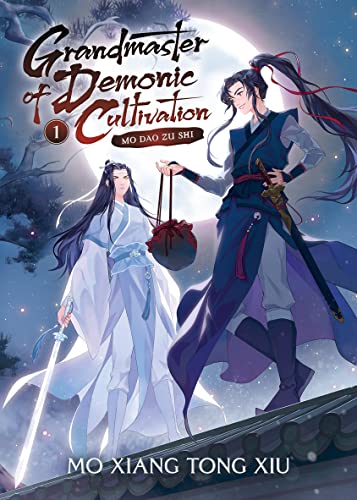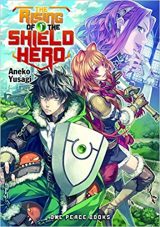 Many of my conversations online with authors and superfans have recently revolved around the sudden revelation that there is another, separate independent science fiction tradition that has arisen from a completely different distribution and audience from the conventional independent scene. And, as books from this scene push into not just Amazon but even brick and mortar stores, the differences in genre conventions, characterizations, and presentation have led many from the more traditional science fiction and fantasy audience to wonder just who is reading all these harem stories, dungeon core stories, cozy fantasy farm stories, litRPGs, and more.
Many of my conversations online with authors and superfans have recently revolved around the sudden revelation that there is another, separate independent science fiction tradition that has arisen from a completely different distribution and audience from the conventional independent scene. And, as books from this scene push into not just Amazon but even brick and mortar stores, the differences in genre conventions, characterizations, and presentation have led many from the more traditional science fiction and fantasy audience to wonder just who is reading all these harem stories, dungeon core stories, cozy fantasy farm stories, litRPGs, and more.
Rather than being quick to explain away the sudden prominence of a number of strange bestsellers with the same sorts of fraud that affect all forms of publishing, let’s instead look at the origin of many of these genres.
The web novel.
Before we go too much further, just as the term pulp was used to describe stories in other media than the original wood-pulp paper magazines, so too will the term web novel be used to describe a bundle of international science fiction and fantasy genres. For, just as the pulps were adapted into movies, radio shows, comics, and more, so too have web novels been adapted into games, comics, television series, and more.
Put simply, web novels are serialized fiction originally posted to online publishing sites such as the Russian SamLib.ru, the Chinese Webnovel.com, the Japanese Shousetsuka ni Narou (“Let’s Become a Novelist”), and the English language Royal Road.
The Chinese model as described by Protocol.com is the standard:
In China, the most popular novels can often last as long as 3 million characters. Writers publish about 3,000 to 8,000 words every day and sometimes feel the need to write more just to keep up with readers’ appetites. Works, never models of brevity given the incentives, are usually the literary equivalent of a popcorn movie. In Chinese, they are called shuangwen (爽文), or stories that impart a brief dopamine high.
But they have a massive reader base, one that’s willing to pay. Many of the most popular stories have been adapted into TV series or movies. In fact, the most commercially successful Chinese television shows of recent years are adapted from web novels.
 Depending on the complexity of the various languages’ writing systems, the words per day can change, but the model of a short-interval serial remains the goal across all platforms and all languages.
Depending on the complexity of the various languages’ writing systems, the words per day can change, but the model of a short-interval serial remains the goal across all platforms and all languages.
The writers for many of these sites are newer to the craft than the established professionals of traditional and independent science fiction. To be kind, the craft in many web noels suffers from inexperience and a lack of editing as the short interval serialization forces a constant stream of first drafts. Writers here succeed with novel ideas, exciting action, humor, and cliffhangers, and not so much on the professional polish demanded by traditional publishing and the Kindle Unlimited indie audiences. Often times, to stand out, these writers have to rely on gimmick settings and concepts that are played as straight as Western speculative fiction’s game of “what if?”.
For those web novel sites who allow direct monetization, the results for a writer’s success, as per The China Project, can be lucrative:
In a few months, Jue was making enough money to support himself. He is now writing full-time on Qidian, a top platform where writers like Tang Jia San Shao (TJSS), Tian Can Tu Dou, and Mao Ni have made a name — and hundreds of millions of RMB — for themselves. With his time-travel historical novels, Jue can bring home 15,000 yuan ($2,222) a month in royalties, as long as he writes 10,000 words per day — not bad for a now-26-year-old in a medium-sized town in northwestern China.
Other methods of monetization rely on crowdfunding sites such as Patreon for a direct neo-patronage model from the fans. Others have to wait for the roving eye of publishers like Ichijinsha, Kadokawa, Aethon Books, Shadow Alley Press, and Portal Books, in order to earn money from their serials.
Successfully catching the eye of a publisher can mean a writer can be hired to adapt the web novel into traditional novels or illustrated light novels and that the story might be licensed into manga, comics, anime, television, video games, and, for those stories with a heavy visual aspect, lots and lots of merchandise. Perhaps the most famous example of this pipeline for English speaking readers is Snowqueen’s Icedragon’s Masters of the Universe, an erotic Twilight fanfiction that became better known, after a bit of rewriting, as E. L. James’ Fifty Shades of Grey, which was adapted into a movie by Universal.
This adaptation cycle replaces the editing cycle, as with each new adaption, the web novel author gets more exposure to craft and to resources that improve the writing of the original web novel. It is not uncommon for fans to prefer the revised novel, light novel, or manga to the original web novel.
The adaptation cycle also brings web novel conventions into other media. Japanese light novels, for instance, are saturated with portal fantasy tropes because sites like Shousetsuka ni Narou fueled the craze. As many of these web novelists became light novelists, their more traditional publishing peers were forced to adopt many of the web novel genre conventions to compete in that ruthless market. As these conventions get carried into manga, anime, and television, these conventions also are spread to foreign markets, combining with the existing genre conventions in new and interesting ways.
 For example, the literary roleplaying game (litRPG) genre in English often uses Russian systems fantasy, Japanese portal fantasy, and Chinese cultivation fantasy tropes instead of relying on Dungeons & Dragons or Pathfinder tropes, even as Wizards of the Coast and Critical Role push roleplaying games into the limelight. But in the process, something of the essential nature is lost. Independent author Kit Sun Cheah notes that in Western and even in Chinese cultivation stories, that “any resemblance to traditional Chinese culture, norms and religion is (usually) coincidental,” of which we shall investigate further in future articles. The same holds for the typically European-influenced settings where it is possible to have a Meiling, a Misuzu, and a Bell in the same village.
For example, the literary roleplaying game (litRPG) genre in English often uses Russian systems fantasy, Japanese portal fantasy, and Chinese cultivation fantasy tropes instead of relying on Dungeons & Dragons or Pathfinder tropes, even as Wizards of the Coast and Critical Role push roleplaying games into the limelight. But in the process, something of the essential nature is lost. Independent author Kit Sun Cheah notes that in Western and even in Chinese cultivation stories, that “any resemblance to traditional Chinese culture, norms and religion is (usually) coincidental,” of which we shall investigate further in future articles. The same holds for the typically European-influenced settings where it is possible to have a Meiling, a Misuzu, and a Bell in the same village.
At the heart of the web novel is the accidental traveler, the popadanets as popularized in Russian literature. And the web novel genres reflect that: systems fantasy, dungeon core, villainess, xianxia/cultivation, and the ever present isekai/portal fantasy. There has even been a boom in magical academies, as the close connections between web novels and fanfiction draw in influences from Harry Potter. All of these genres thrust the main characters into some exploration of an Other—be it an Otherwhere, and Otherwhen, an Otherhow, an Otherwho, or some combination of each. And in future articles at the Castalia House Blog and on Substack, we will examine a number of these popular genres, as it is the weirdness inherent to many of these, and the fact that there is a audience for such, that catches many of the more traditional authors by surprise.
Please give us your valuable comment